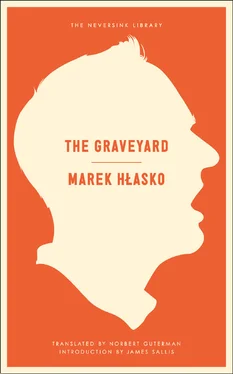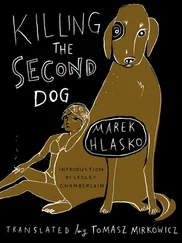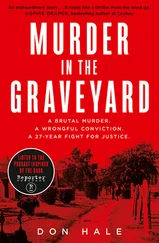Dying in Wiesbaden.
One of the novels that had been refused publication is the book you’re holding now. Other early work largely ignored the established, Communist order; characters were outsiders chiefly because of their dogged insistence in pursuing their individual lives behind the wall. The Graveyard drove headfirst into that wall. Thereafter, his characters would be not just outsiders but outcasts. With exile, Hłasko found his focus become at once tighter, in that he narrowed his observations to the fatally marginalized, the disavowed and dispossessed, and wider in that again and again he limned the question of how to live without faith, without belief. Agnieszka of The Eighth Day of the Week said it for them all: “The ideal is life without illusions.” Hłasko wrote of the people among whom he had earlier lived and worked, and of those whom he, while subsisting on menial labor, stubborn determination, and his wits, had encountered at the places he’d touched down.
The road that led me to literature was very different from the one followed by my fellow writers in Poland … I came to it from below. And when I began to write, I’d already seen so much that it was absolutely impossible for me to believe in official truth. †
So, too, does violence push itself from the wings to center stage, pulling behind it, as on a chain, all manner of inauthenticity, deception, and dissembling. In Killing the Second Dog , a character looks “like an insect emerging into light for the first time from under an overturned stone.” One character declares: “My future? That’s a word I won’t be needing anymore.” Another: “There are no values left. That’s why no tragedy is possible today.” And if no tragedy, then what? Characters impersonate the cartoon character Goofy, take on the traits of movie types, spin duplicitous selves from spit, spite, and thin air — filling the void with whatever comes to hand.
Often Hłasko himself seems to be much like his characters, barely clinging to the edge of the world, to the edge of what he knows. Making his way not from streetlight to streetlight in the darkness but from stopgap to stopgap.
The Graveyard foreshadows much that was to come. The novel skirts the border of and plunges into the sinkholes of nihilism, a great zero burning at its heart: a circle around nothing. Yet it goes about its business subversively. Its surface bears up the simple tale of a man who loses all, a crooked retelling, really — Job and the Great Collective — while, just beneath, alligators glide and turn. Their eyes, their snouts are visible for moments, then are gone.
All begins simply enough. Out for a visit with a friend, Franciszek Kowalski becomes a bit drunk and, singing an old patriotic song on the way home, is stopped and questioned by police, grows indignant, and gets jailed overnight.
“A party member,” said the man in plain clothes, spreading his hands. “A former partisan, an officer, and — well? Just to look at you, Kowalski, one would say you’re decent, quiet, probably a good comrade. But when we probe deeper, we find an enemy. You’ve unmasked yourself, Kowalski …” He gave the pile of papers a push. “That’s the way it looks,” he said. “You’ve unmasked yourself, and that’s that.”
His military service, his years of faithful, productive work, his countless hours of party meetings, his constant aid and counsel to fellow workers — none of this matters now, in light of that one evening. The first unmasking leads to another and, once set in motion, cannot be undone. As Archibald MacLeish wrote in his retelling of the Job story: “Saw it start to, saw it had to. / Saw it.” Here, almost halfway through the novel, Kowalski goes for a walk along familiar streets.
From the dark streets the wind blew suddenly, picking up tatters of old posters and dragging them across the square. The second shift had begun; he could hear the roar of the engines, and the rattling and grinding of the machines. He passed the gate and walked out into the street; it ran far off into the darkness, and somewhere at the end of it drunks were staggering under the gas lamps, their shadows shrinking and crawling along the ground, or lengthening and sliding over the unlit windows of the houses. The sidewalk was wet and glassy. Franciszek looked down; in the puddles stars swam like fat worms.
People won’t go without an idea, one of Franciszek’s several confessors explains. Some new madman will always come along, grab hold of an icon, and run through the streets holding it aloft. The best revenge, he says, would be to create a new ideology. “To lead crowds to the sunny days of the future — that’s the biggest joke of all.”
A joke, or a lie? A question you well may ask yourself after reading The Graveyard and seeing what happens to poor, unsuspecting Franciszek Kowalski.
Friend and countryman Leopold Tyrmand said of Hłasko that he was “a man built of lies, some of them scurilous, some of them charming,” setting the small lies of himself and his books against what he saw as a sea of untruth around him. Marek Hłasko lived and wrote in the interstice between what we see in the world and what we make of it, in that narrow crawlspace between outside and inside, self and world, where we all take up temporary habitation, never settlers, forever squatters.
*Quotations in this essay from Hłasko’s memoir, Beautiful Twentysomethings , are taken from the Northern Illinois University Press edition (2013), translated by Ross Ufberg.
†From a 1958 interview, translated by Thompson Bradley, with the magazine L’Express .
One of us is a decent fellow — our public prosecutor; but to tell the truth, he is a pig too …
— GOGOL, DEAD SOULS
FRANCISZEK KOWALSKI, FORTY-EIGHT YEARS OF age, slender, slightly balding, with a ruddy complexion, prominent cheekbones, and blue eyes, took a drink you won’t believe how rarely, only on really extraordinary occasions; he never drank more than he could hold, and never had to be told later by others what he had talked about and how he had behaved. He was one of the lucky few who upon waking in the morning never have to be ashamed of the night before. Late one night, however, on his way home from a party meeting, a meeting which had dragged on for many hours, and at which he had often had to take the floor on matters of importance to him and his fellow workers, he ran into a friend whom he had known when they were both partisan fighters. He had not seen him since 1945 when he himself had marched off to the front while his friend, then seriously wounded, had gone to the hospital and stayed there until the end of the war. This meeting so delighted them that they decided to celebrate it with a glass of vodka. They went to the nearest bar. The friend ordered a half pint; and when the bottom of the bottle showed, Franciszek called the waiter, and, so as not to give his friend the impression that he had gone completely rusty since the days of the underground, ordered another half pint. This put them in such high spirits, they talked so heartily, and faded memories took on such brilliant colors, that they asked for a third half pint almost in one breath, and then the waiter himself, without asking them, served them a fourth. When they walked out, day was breaking, and the first bands of light were beginning to show in the gray sky. They said goodbye, affectionately shaking hands at great length, and then each went his way.
Franciszek walked briskly, keeping his eye on a line in the sidewalk, but he felt that some hitherto unknown forces were rocking him from side to side, and the line in the sidewalk kept vanishing from his field of vision. “I guess I’m a bit …” he murmured, “a bit … what the hell …” And suddenly, to his own surprise, he began to sing in a tenor:
Читать дальше






![Ричард Деминг - Whistle Past the Graveyard [= Give the Girl a Gun]](/books/412176/richard-deming-whistle-past-the-graveyard-give-t-thumb.webp)


